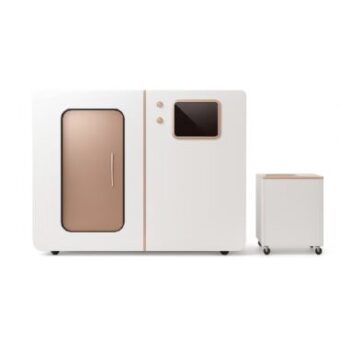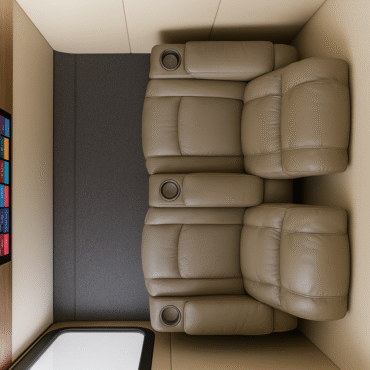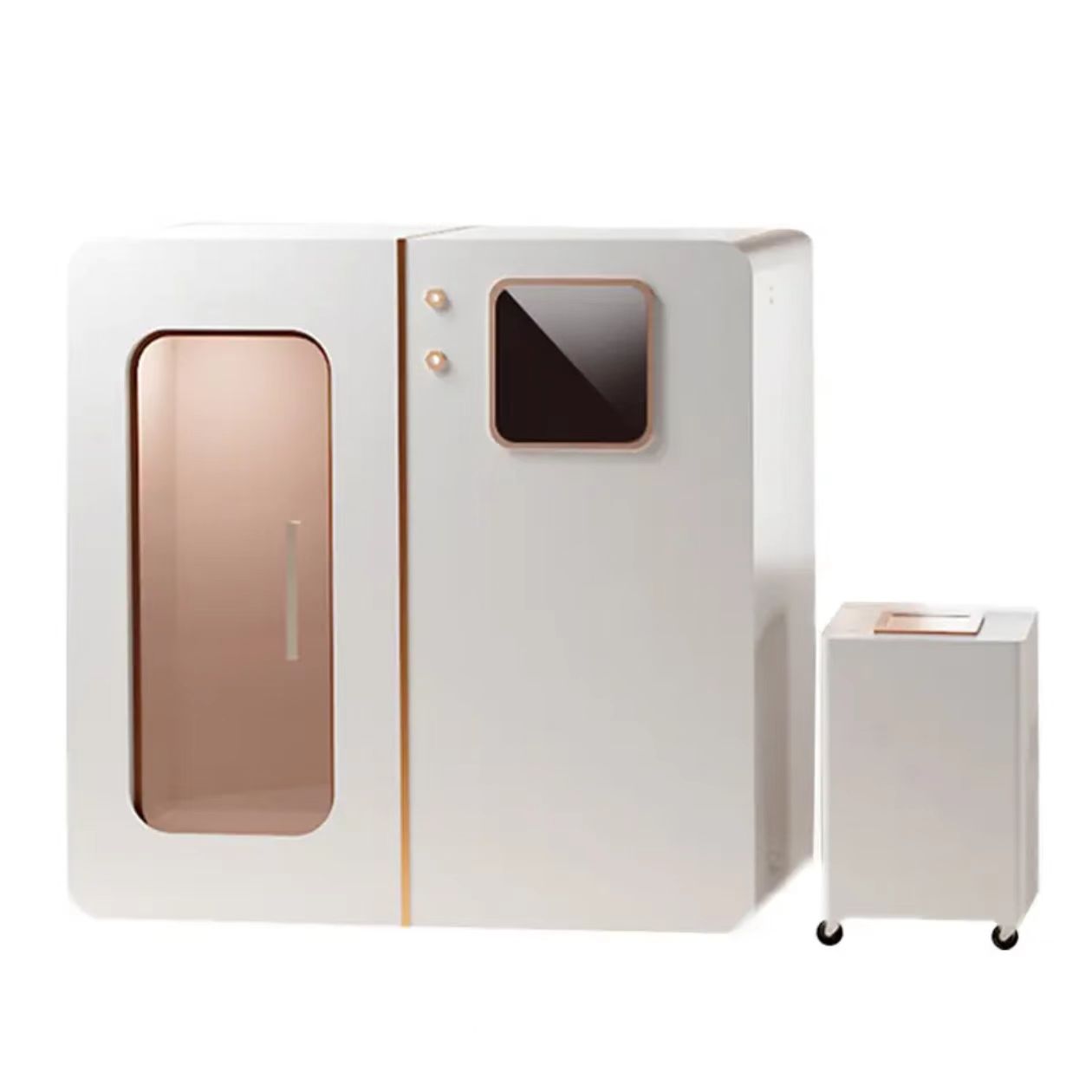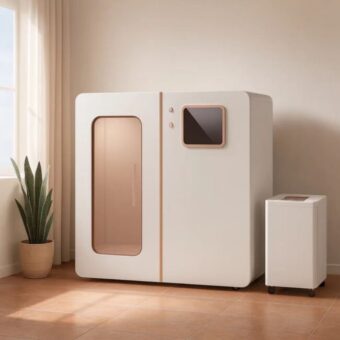Mobile Intelligent Hard Hyperbaric Chamber
Chamber Material: Carbon steel
Material Thickness: 2.5 mm (thioken)
Weight: 1.5 t
Floor Area: 5.3 m²
Power: 2350 W
Volume: 20 L
Oxygen Purity: 93 % ± 3 %
Range: 10–30 kPa
Pressure: 1.3 ata
Dimensions: 2800 mm × 1900 mm × 1800 mm

1.5 ATA Mobile Double Intelligent Hyperbaric Oxygen Chamber
Specification: 2 people
Cabin dimensions: 280*190*180 cm
Maximum power: 2350 W (Including air conditioning power)
Thomas Compressors, Honeywell UOP Molecular Sieves Oxygen Concentrator Technology, Japan SMC solenoid valve.
High-strength carbon steel cabin, thickened pressure-resistant material.
Ultra-quiet host. Hidden air-conditioning, drainage outside the cabin, automatic water level alarm system.
Vector ventilation system, circulating ventilation to keep the air fresh.
EO-level environmentally friendly zero formaldehyde interior, mother and baby-grade safe protection. Three-color adjustable ambient lighting.
The Interior View
This interior view reveals the mobile double intelligent hyperbaric oxygen chamber. A premium leather recliner with ergonomic cushioning and integrated cup holders offers exceptional comfort during therapy sessions. The quiet, insulated walls and soft floor covering create a calm and private environment, while a built-in oxygen interface and digital control panel ensure safe, efficient oxygen delivery and easy session management. Ideal for wellness centers, sports recovery studios, or high-end home installations, this chamber provides a professional-grade experience focused on relaxation and health optimization.

Price includes chamber capsule/cabin, oxygen concentrator, air Compressor, air cooler, and all system components. You DO NOT need to buy/prepare anything else.
No. Our chambers are easy and safe to operate alone, with no need for other’s assistance. Anyone with average studies can install and operate the chamber as long as reads the user manual and operation video. We provide customers with online training. Also, face-to-face talk is available.
Usually for personal use, 60-90 min one time, one time one day, 5 days one week. What you will be able to notice is whether you are continuing to make improvements. A clinical study on 1730 subjects shows the need for around 15 sessions for acute injuries and 40 for chronic ones. If you saw results during the first 40 sessions, do another 40. If improvements continue, do another 40. Etc. You are a better judge of the number of sessions needed than any Doctor.
While the chamber is pressurizing, your ears will feel the change in pressure inside the chamber. Otherwise, it should be unnoticeable. To equalize the pressure and avoid the feeling of fullness in your ears, you will need to clear your ears by chewing(gum of food), swallowing, yawning. During the pressurization of the chamber, your mouth may become dry. Once the chamber is fully pressurized, your salivation will return to normal. Other than this ear pressure there are no unusual or different sensations. After using the oxygen chamber, one of the most intuitive feelings is refreshing, and you will feel full of vitality.
The most common side effect is discomfort in the ears caused by pressure changes. To minimize the risk, patients learn to promote the adequate clearing of their ears during pressurization. Some patients may feel tired and dizzy after using a hyperbaric chamber for the first time. It’s a good signal as Hyperbaric Oxygen Therapy will speed up the metabolism of our body. Just like people feel tired after a long running. They are usually good signs of indicating detoxification.
Pregnant women, people with infectious diseases and severe illnesses. Drunk. People with severe colds. Patients with pacemakers. Rhinitis, otitis media patients. People with high blood pressure exceeding 160/110 mmHg. Patients with severe emphysema.



